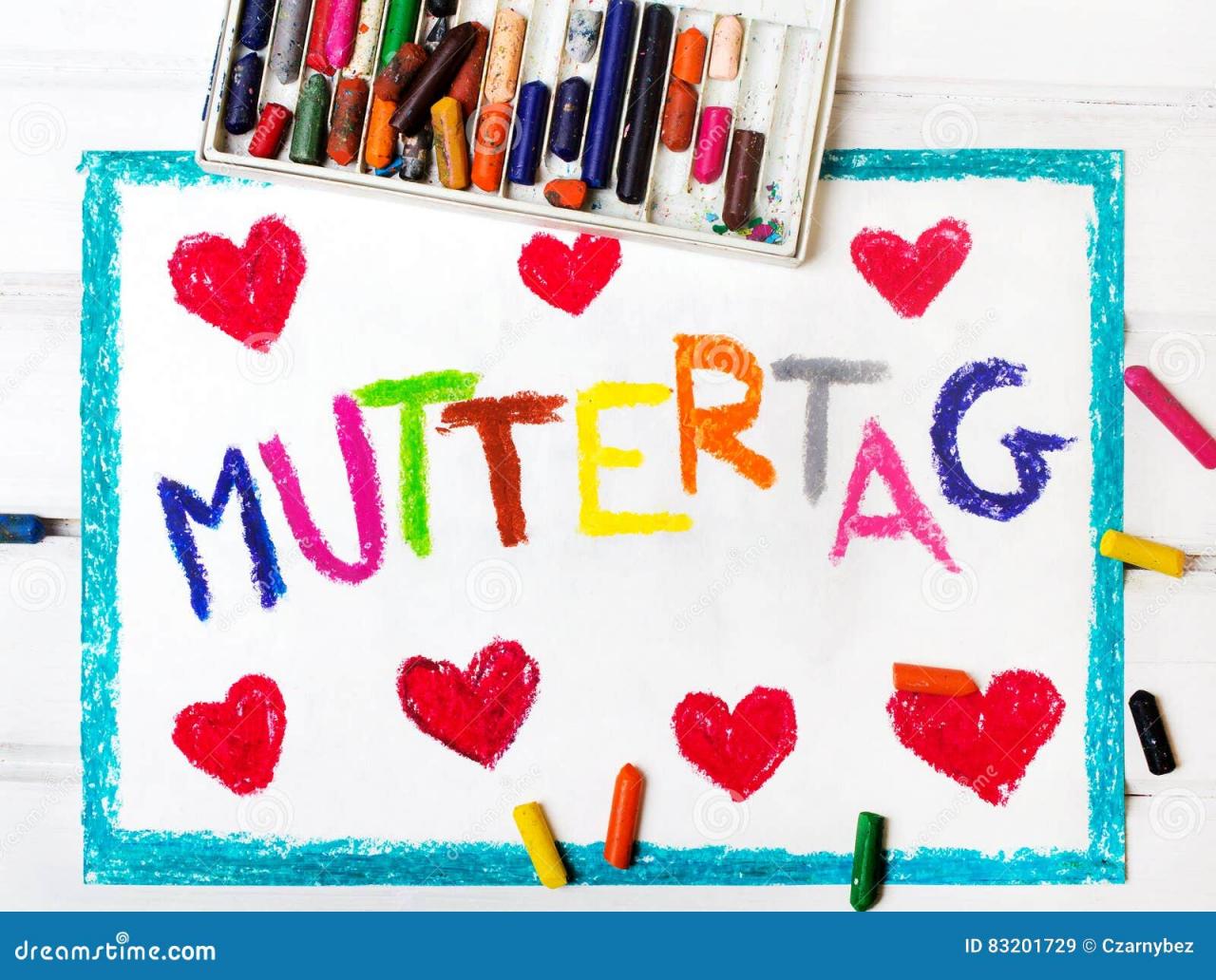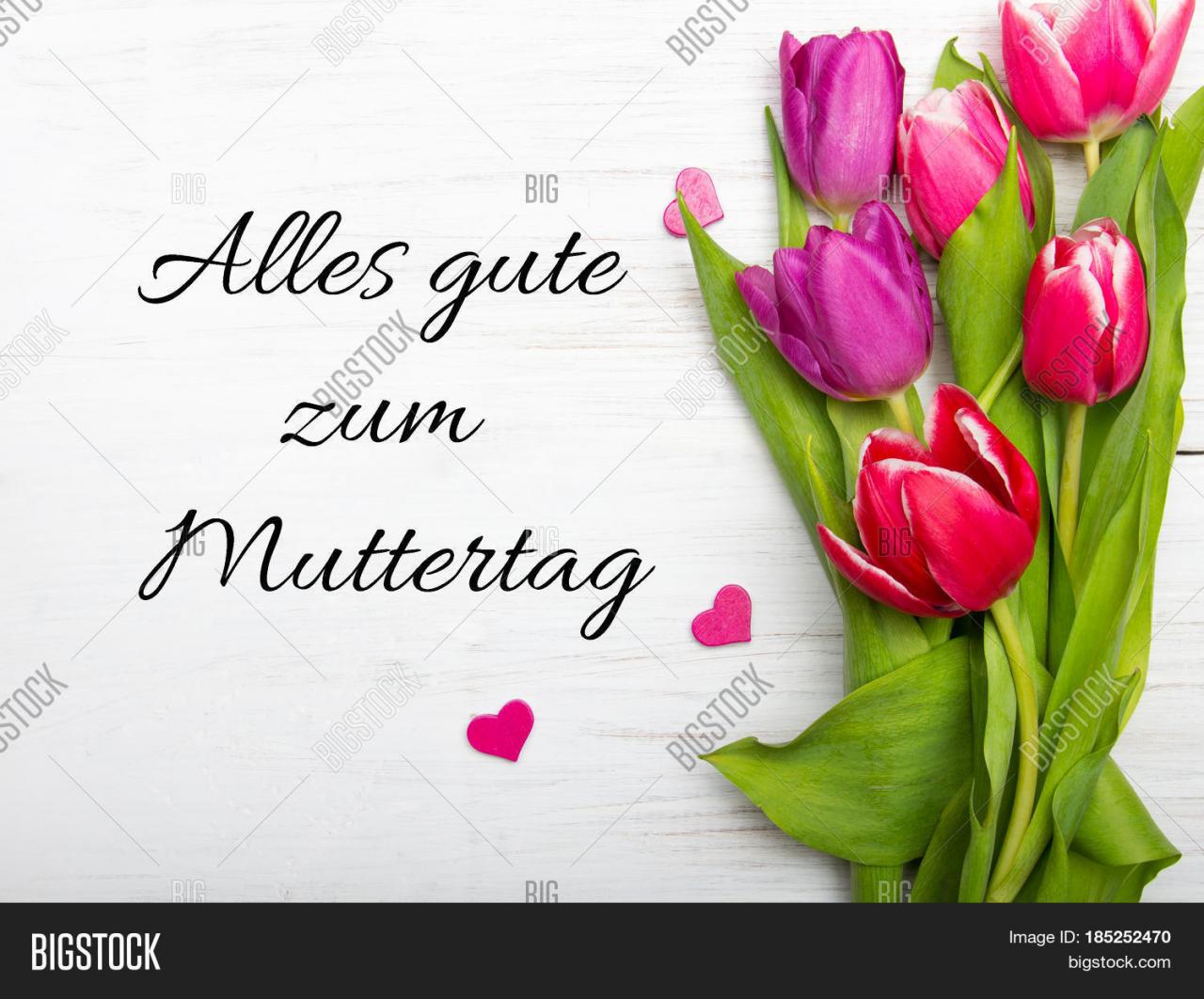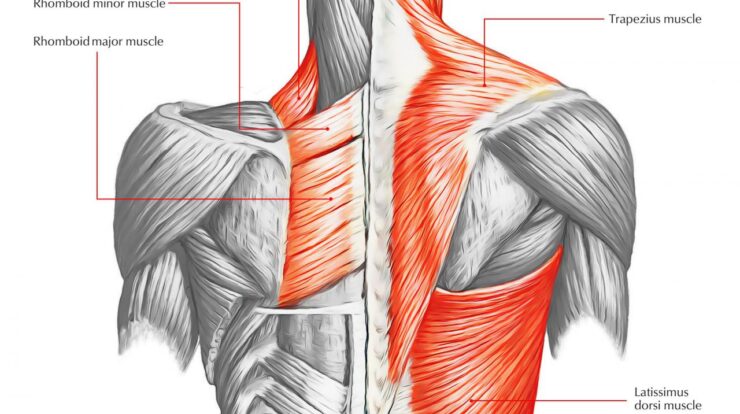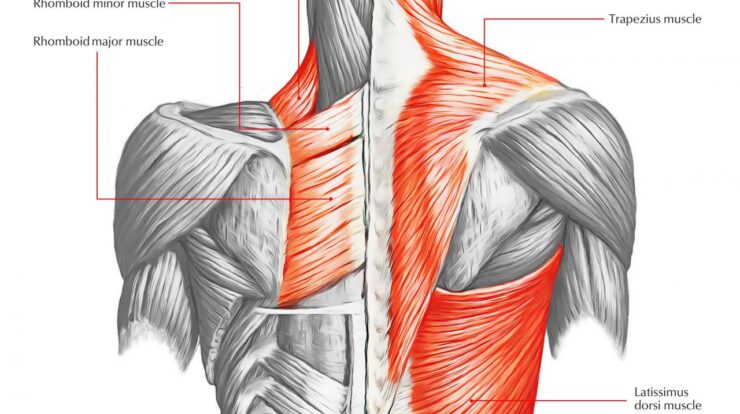
Happy mother’s day in german – In Germany, Mother’s Day is a cherished occasion marked by heartfelt gestures and family gatherings. Known as “Muttertag,” it holds a special place in German culture, honoring the unwavering bond between mothers and their loved ones.
As the world celebrates Mother’s Day, people are expressing their love and appreciation for their mothers in various ways. Happy Mother’s Day greetings are being shared in different languages, including Vietnamese. Those who have lost their mothers can find solace in Happy Heavenly Mother’s Day messages, honoring their memory.
This day is steeped in history and traditions that have evolved over time. Families come together to express their gratitude and appreciation for the love, care, and sacrifices of mothers.
German Mother’s Day History
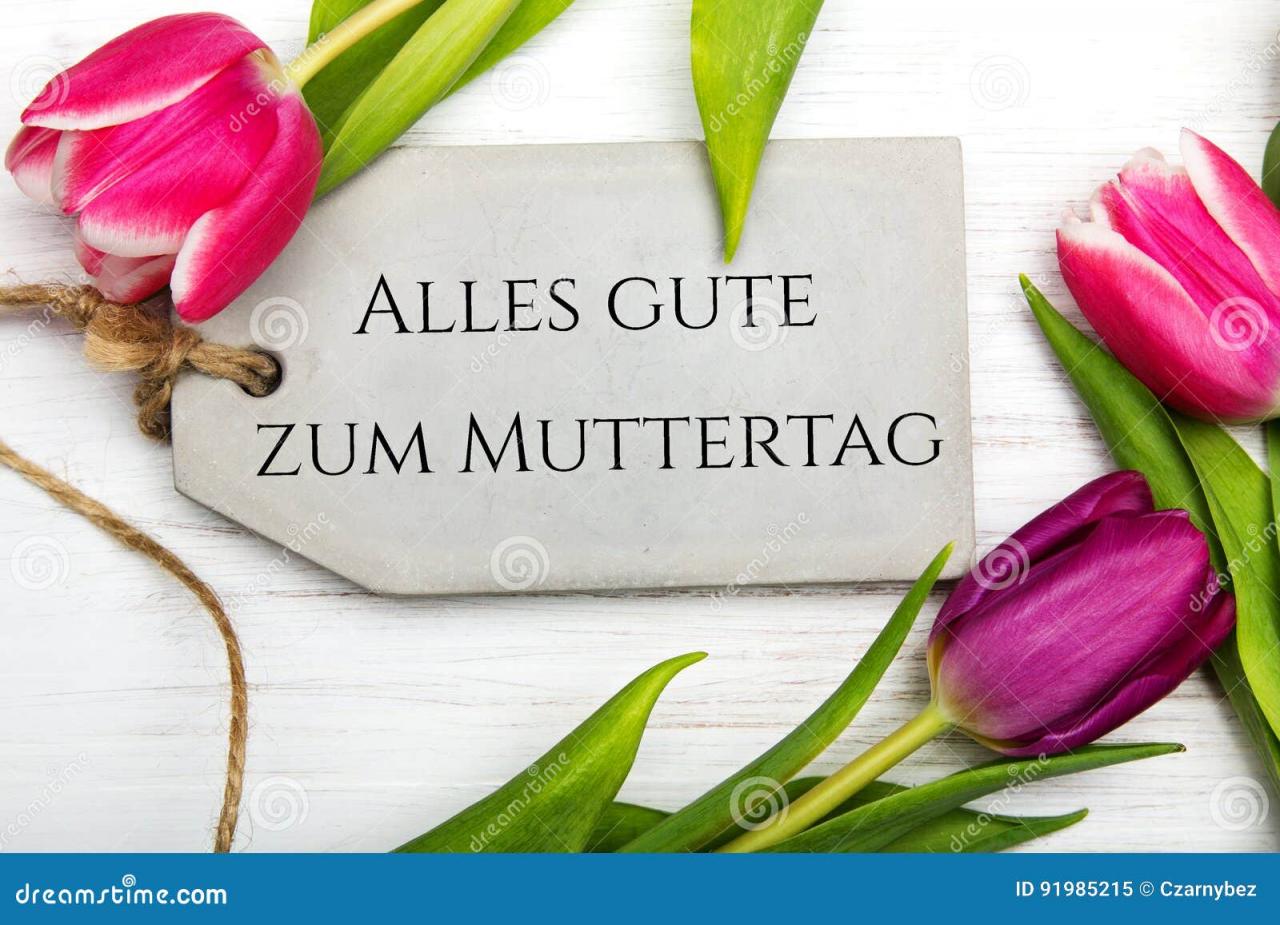
Mother’s Day in Germany, known as Muttertag, has a long and rich history dating back to the early 20th century. The origins of the celebration can be traced to a movement by women’s rights activists and social reformers.
In 1907, Anna Jarvis, an American activist, campaigned for a national Mother’s Day in the United States. Her efforts inspired German women’s groups to advocate for a similar celebration in their country.
In 1922, the first official Mother’s Day was celebrated in Germany. The day was initially set on May 13, but in 1934 it was moved to the second Sunday in May, which remains the date of celebration today.
Traditional Celebrations
Mother’s Day in Germany is a day for families to come together and honor their mothers. Traditional celebrations include:
- Family gatherings: Families gather for a special meal or outing to celebrate their mothers.
- Special meals: Mothers are often treated to their favorite meals or special treats.
- Gift-giving: Children and partners give their mothers gifts, such as flowers, chocolates, or jewelry.
Other popular activities on Mother’s Day in Germany include:
- Attending church services
- Visiting cemeteries to honor deceased mothers
- Spending time in nature
Cultural Significance
Mother’s Day in Germany is a day to celebrate and appreciate the role of mothers in society. It is a day to recognize the sacrifices and love that mothers give to their families.
The day also reflects the importance of family in German culture. Families are highly valued in Germany, and Mother’s Day is an opportunity to strengthen family bonds.
Modern Interpretations
In recent years, Mother’s Day celebrations in Germany have evolved to reflect changing societal norms.
One notable trend is the growing popularity of non-traditional gift-giving. Mothers are now more likely to receive experiences, such as spa days or cooking classes, rather than material gifts.
Social media and technology have also had an impact on the way people express gratitude to their mothers on Mother’s Day.
Many people now use social media to share photos and messages of appreciation for their mothers. Others use video conferencing to connect with mothers who live far away.
Language and Expressions
There are many common German phrases and expressions used to wish someone a happy Mother’s Day.
Some of the most popular phrases include:
| German Phrase | English Translation |
|---|---|
| Alles Gute zum Muttertag! | Happy Mother’s Day! |
| Danke für alles, Mama! | Thank you for everything, Mom! |
| Ich liebe dich, Mama! | I love you, Mom! |
These phrases are often used in combination with flowers, chocolates, or other gifts.
Symbolism and Imagery, Happy mother’s day in german
The most common symbol of Mother’s Day in Germany is the carnation. Carnations are often given to mothers as a symbol of love and appreciation.
Other symbols of Mother’s Day in Germany include:
- The heart: The heart is a universal symbol of love and affection, and it is often used to represent Mother’s Day.
- The rose: Roses are also a popular symbol of Mother’s Day, and they are often given to mothers to express love and gratitude.
- The Mother Mary: The Mother Mary is a revered figure in German culture, and she is often associated with Mother’s Day.
These symbols are often used in decorations, cards, and other Mother’s Day-related items.
Wrap-Up: Happy Mother’s Day In German
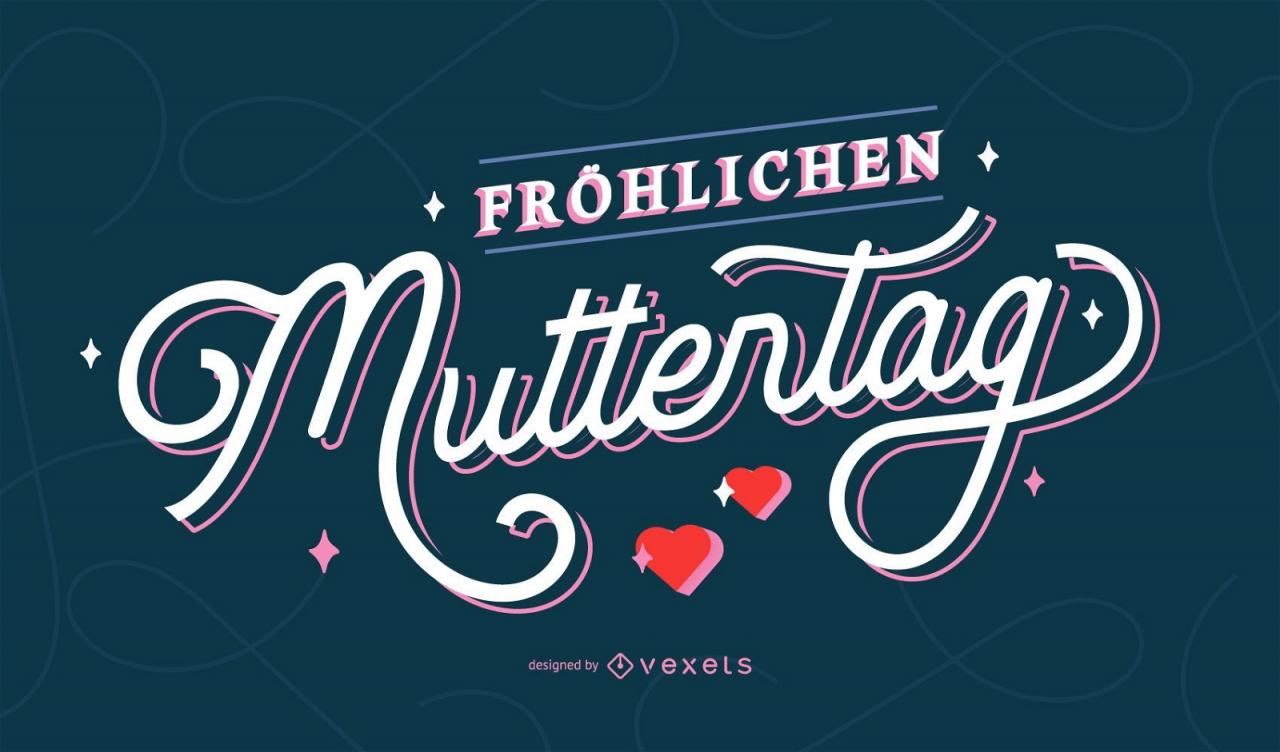
Mother’s Day in Germany not only celebrates the exceptional role of mothers but also serves as a reminder of the importance of family and the enduring love that binds them together.
Commonly Asked Questions
What is the traditional German greeting for Mother’s Day?
The traditional German greeting for Mother’s Day is “Herzlichen Glückwunsch zum Muttertag,” which translates to “Happy Mother’s Day.”
What are some common German phrases used to express gratitude to mothers?
For those looking for a touch of whimsy, Snoopy Happy Mother’s Day images provide a cheerful and endearing way to celebrate. Meanwhile, Happy Mother’s Day pictures capture the special bond between mothers and their loved ones, offering a timeless way to express gratitude.
Some common German phrases used to express gratitude to mothers include “Danke für alles, Mama” (Thank you for everything, Mom) and “Ich liebe dich, Mama” (I love you, Mom).
What is a popular tradition associated with Mother’s Day in Germany?
A popular tradition associated with Mother’s Day in Germany is the giving of flowers, especially red carnations, as a symbol of love and appreciation.
